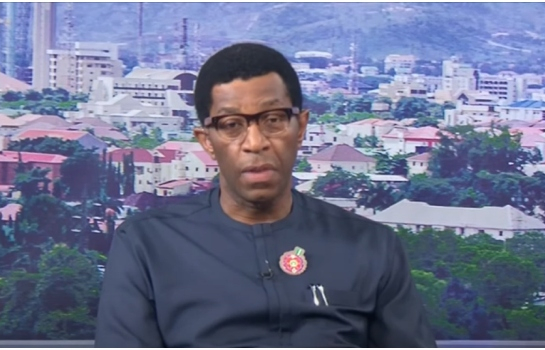Nigeria
NERC: DisCos Must Downgrade Band A Customers If Supply Targets Aren’t Met

The Nigerian Electricity Regulatory Commission (NERC) advises DisCos to adjust Band A customer classifications if electricity supply falls short.
The Nigerian Electricity Regulatory Commission (NERC) has instructed electricity distribution companies to reclassify customers in the Band A category if they lack sufficient supply capacity.
Dafe Akpeneye, the Commissioner of Licensing and Legal for NERC, disclosed this information on Channels Television’s Morning Brief program on Friday.
He believes that if the discos fail to provide the promised 20 hours of electricity to Band A customers, those customers should be immediately downgraded to a level where supply requirements can be met.
“Regarding the migration order, it is not optional for the customer’s instance. The distribution company must submit an application and ensure they can provide power to customers in Band A.”
If Discos are unable to supply these customers, they must downgrade them to a level that aligns with their available capacity.
“The distribution network can only deliver what is currently available on the grid. Therefore, if there’s no supply to the grid, it becomes impossible for distributors to fulfill their delivery commitments. However, with recent resolutions made regarding the grid issues, we are hopeful that supply will improve. If improvements don’t materialize as expected, distributors will need to downgrade affected customers,” Akpeneye stated.
Regarding NERC transferring regulatory oversight to the states, he explained that the Nigerian constitution empowers these states to generate, transmit, and distribute power.
States are now empowered to create and regulate electricity markets in accordance with the Nigerian constitution. They have been granted authority over electricity generation, transmission, and distribution within their territories without any restrictions.
READ ALSO: DisCos Ordered to Replace Faulty Meters – NERC
It is important to remember that Nigeria operates under a legal framework. According to Nigerian law, states have the authority to establish and regulate their own electricity markets. Additionally, as outlined in the concurrent list, states now hold exclusive control over power distribution.
“The states possess these powers and are responsible for exercising them. Every Nigerian hails from a state, which inherently have the capacity to act on these matters. Currently, we have a team from Oyo State working with us; they’ve informed us of their plans and will be spending a week at our commission to learn about our operations in-depth. Prior to this visit, they’ve conducted research both in Ghana and through an extensive 11-week training with an international regulatory body. This process is part of how states can develop their capacities, acquire knowledge, and advance,” he stated.
Regarding customers seeking resolution for complaints, NERC mentioned that the commission has established a customer protection regulation. This was consolidated and codified last year to safeguard customers’ interests.
To have their complaints addressed by NERC, customers must first file a complaint with the Discos. If the Disco fails to respond within a specified timeframe, customers can then approach a small mediatory group known as NERC’s consumer forum for resolution.
The complaint process has been successful. In some cases, when complaints are not resolved by the distribution companies (discos), they are escalated to NERC and then addressed effectively. We consistently strive to ensure that customers receive a fair resolution.
“When a customer has been overbilled, they receive fair compensation. However, if customers bypass meters, we ensure the case is handled appropriately,” he stated.
